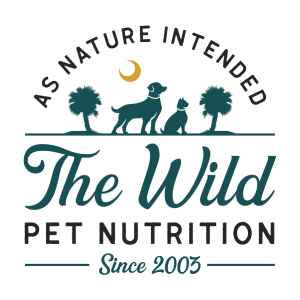Nutrition in Veterinary Education

What Do Vets Learn About Nutrition?
- During the four years of postgraduate education that are required to become a licensed veterinarian, vet students study a vast array of medical courses including “anatomy, physiology, pharmacology, microbiology, immunology, pathology, toxicology, biochemistry, surgical techniques, and many more, as well as in-depth courses on specific animal species and body systems.” (American Medical Veterinary Association) 1
- However, there is one key area in which traditional veterinary colleges are lacking and that is the field of pet nutrition. In those four years of study, some veterinary students receive as little as one week of “education” on pet nutrition. On her site catinfo.org, Dr. Lisa Pierson DVM writes, “Like medical doctors for humans, veterinarians receive very little training in school regarding nutrition. And what is discussed is often taught by representatives of large pet food companies…. This represents a significant conflict of interest. …Unfortunately, the result is that veterinarians are not always the best source of nutrition advice.” 2
- In an article written for Dogs Naturally Magazine, Dr. Andrew Jones, DVM states, “I was taught nearly nothing about nutrition and I am of the opinion that most veterinarians also know very little about nutrition.” He goes on to reiterate, “Your veterinarian is extremely knowledgeable, able to diagnose the most obscure disease, and can perform the most intricate surgery but they likely know very little about dog nutrition.” 3
- This gap in the traditional vet’s training can create a serious issue for our pets since one of the most fundamental keys to our pets’ health is nutrition.
Why Do Some Vets Recommend a Prescription Diet?
- In many cases, veterinarians recommend these diets because they were taught nutrition by the manufacturers of prescription diets. The information taught fits their agenda and leads to a biased education if not questioned. Dr. Michele Yasson, DVM, reveals that during her time in veterinary school, “The bulk of my nutritional education consisted of a few hours per day for one week! That’s right – a grand total of one week out of four years for a discipline that is now one of the three main pillars of my approach to optimal health for pets! And that’s not the oddest part. Believe it or not, it was ‘taught’ by a Hill’s Pet Food company representative!” 4
- Dr. Karen Becker, DVM, explains that pet food manufacturers will even pay for the tuition of veterinarians looking to expand their education. “Unfortunately, even the majority of board-certified veterinary nutritionists have also been schooled primarily about processed pet diets, and believe it or not, major pet food manufacturers frequently pay the tuition for DVMs studying to become veterinary nutritionists.” 5
- The influence of major pet food manufacturers continues beyond graduation and into the clinic. Dr. Andrew Jones, DVM states, “My education came from the food company representatives; those that sponsored events while I was a student and later the food reps that visited the veterinarian practices I worked in. …The food reps encouraged veterinarians to sell their ‘veterinarian only’ food as it was deemed exclusive, and could be sold with a higher markup.” 3
Resources
Not all veterinarians are under-educated when it comes to nutrition. For instance, Integrative or Holistic veterinarians choose to pursue additional education in many areas, especially nutrition. “I used to hate talking about diet with my clients. That was before I fully understood the vital correlation between food and optimal pet health. Now diet is my favorite subject.” Dr. Barbara Royal, DVM 6
To further your research, here are some great resources from veterinarians who have pursued additional education in nutrition and understand the importance of a species appropriate diet:
- Lisa A Pierson, DVM: https://catinfo.org/
- Dr. Karen Becker: https://healthypets.mercola.com/
- Dr. Laurie Coger: http://healthydogworkshop.com/
- Dr. Barbara Royal’s book: The Royal Treatment: A Natural Approach to Wildly Healthy Pets
Further External Resources
- https/www.avma.org/public/YourVet/Pages/training.aspx
- https://catinfo.org/docs/Feeding%20Your%20Cat%20-%204%20pages%2011-13.pdf
- https://www.dogsnaturallymagazine.com/what-does-your-dogs-vet-know-about-nutrition/
- http://www.bestcatanddognutrition.com/roger-biduk/vets-and-their-poor-knowledge-of-cat-and-dog-nutrition/
- https://healthypets.mercola.com/sites/healthypets/archive/2018/12/28/prescription-pet-food.aspx
- Royal, Dr. Barbara. The Royal Treatment: A Natural Approach to Wildly Healthy Pets. New York: Emily Bestler Book, 2010. Print.


